Abstract
Experimentation on condemned men is assumed to have been a common practice in ancient Alexandria, but disappeared in Rome and during the Middle Ages. Sporadic cases were documented in the Renaissance and afterward, involving experiments both before and immediately after execution. The advent of the guillotine raised the question of possible persistence of consciousness after execution and that spurred much electrophysiological study of freshly decapitated heads and bodies. In 19th-century Europe, interest focused on cardiac function immediately after beheading. In the early 20th century, many condemned men in the Philippines were used by American physicians for their research on plague and beriberi.
Briefly discussed is the relevance of the practice of human sacrifice in Homeric Greece and Mayan Yucatan, as well as experiments on black slaves in America. The Nazi medical crimes of World War II encompass a totally different morality, and are not really comparable to the matter at hand. They have, however, so stirred emotions as to discredit the general concept of experimentation associated with capital punishment. Even within the framework of our system of jurisprudence, the altruistic desires of many now languishing on death row are being ignored.
Full text
PDF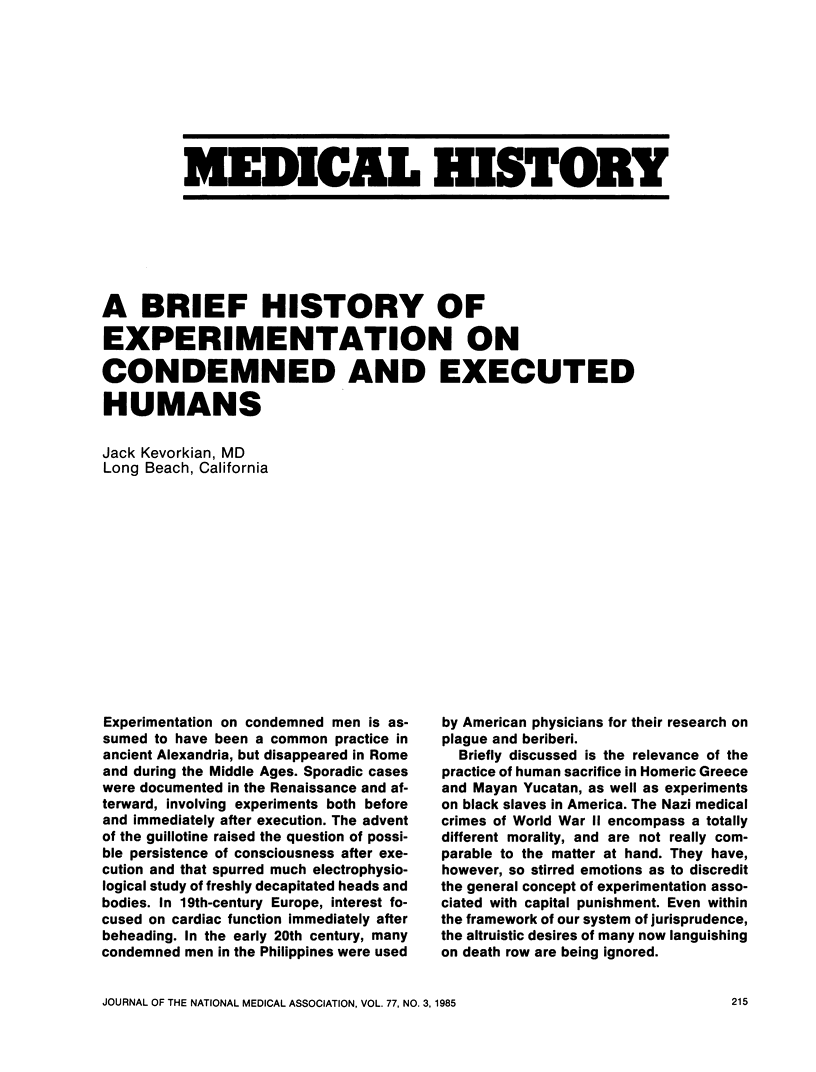
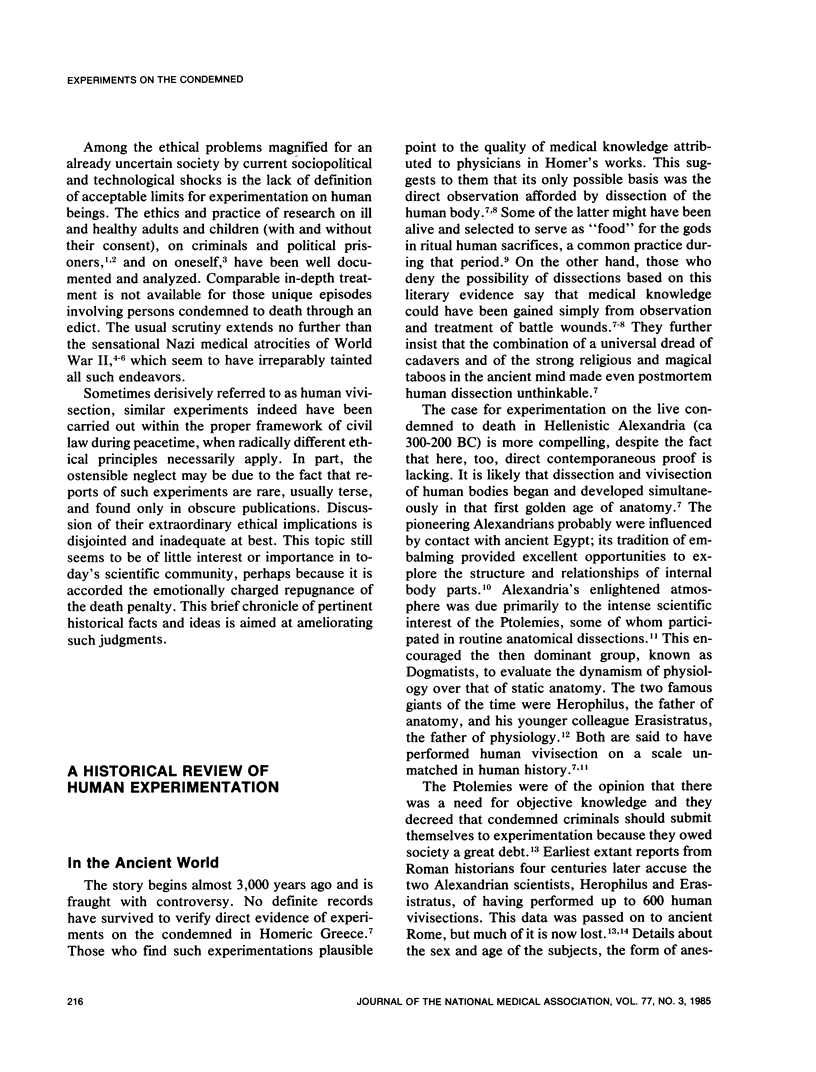
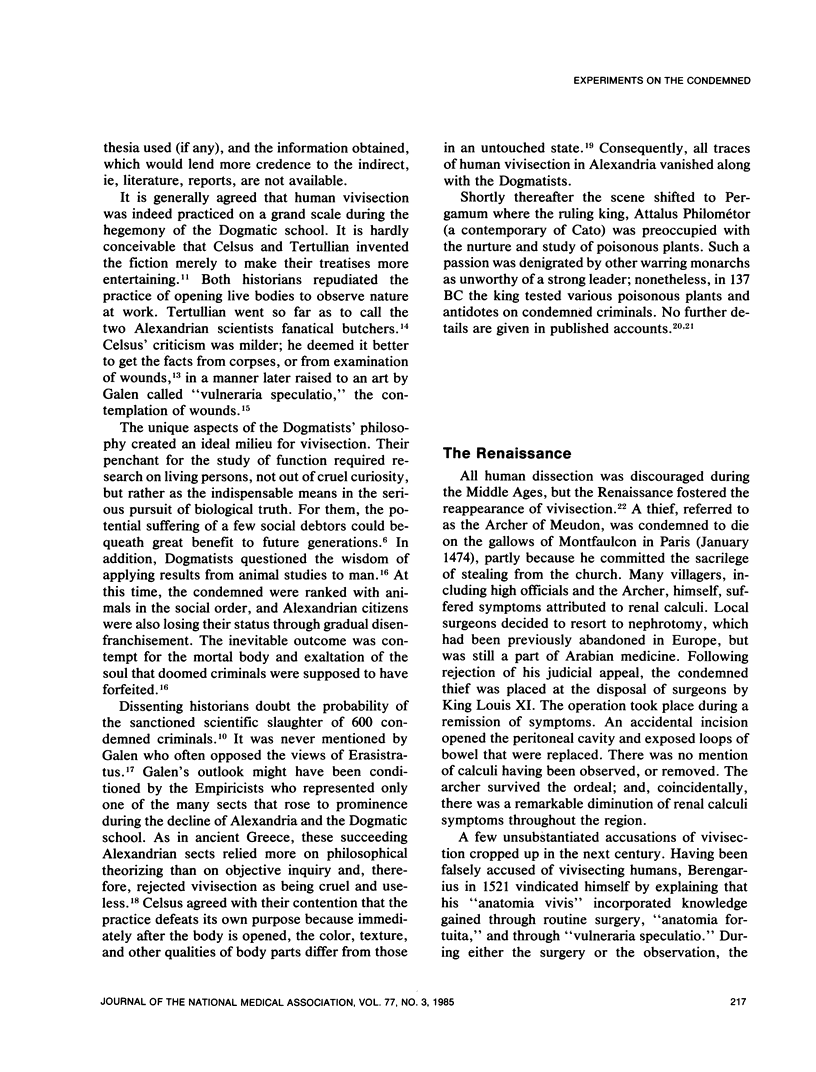
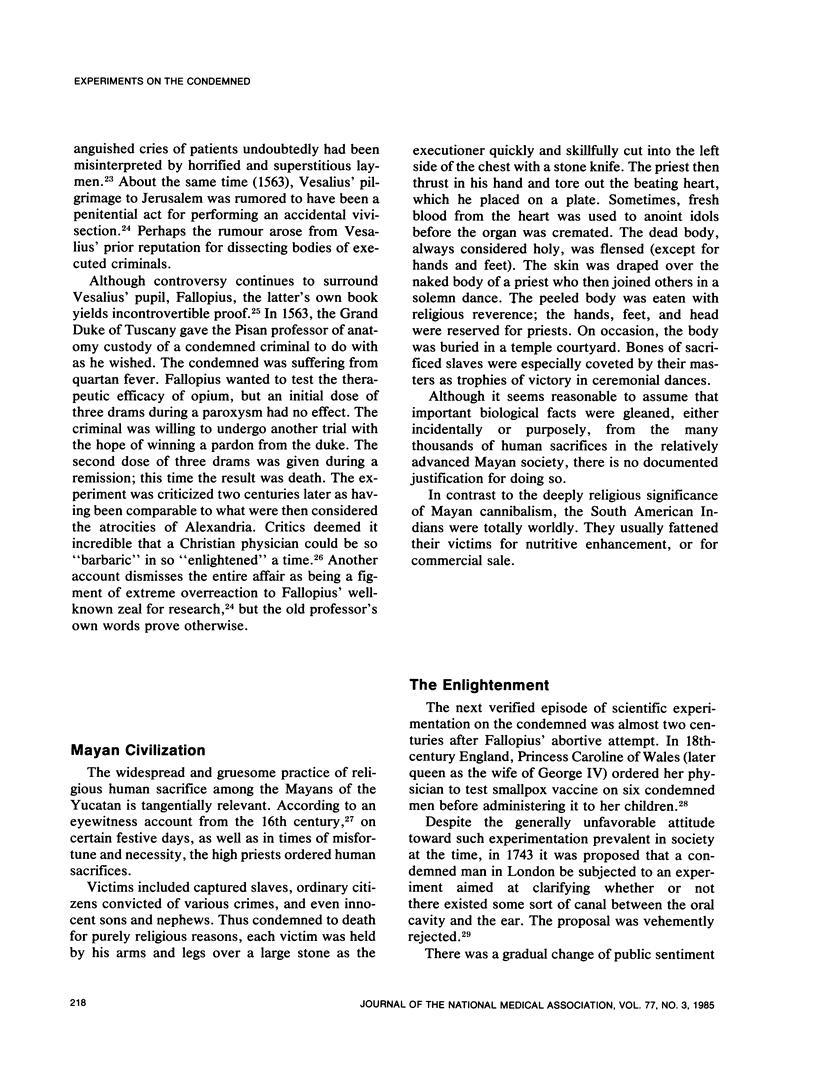
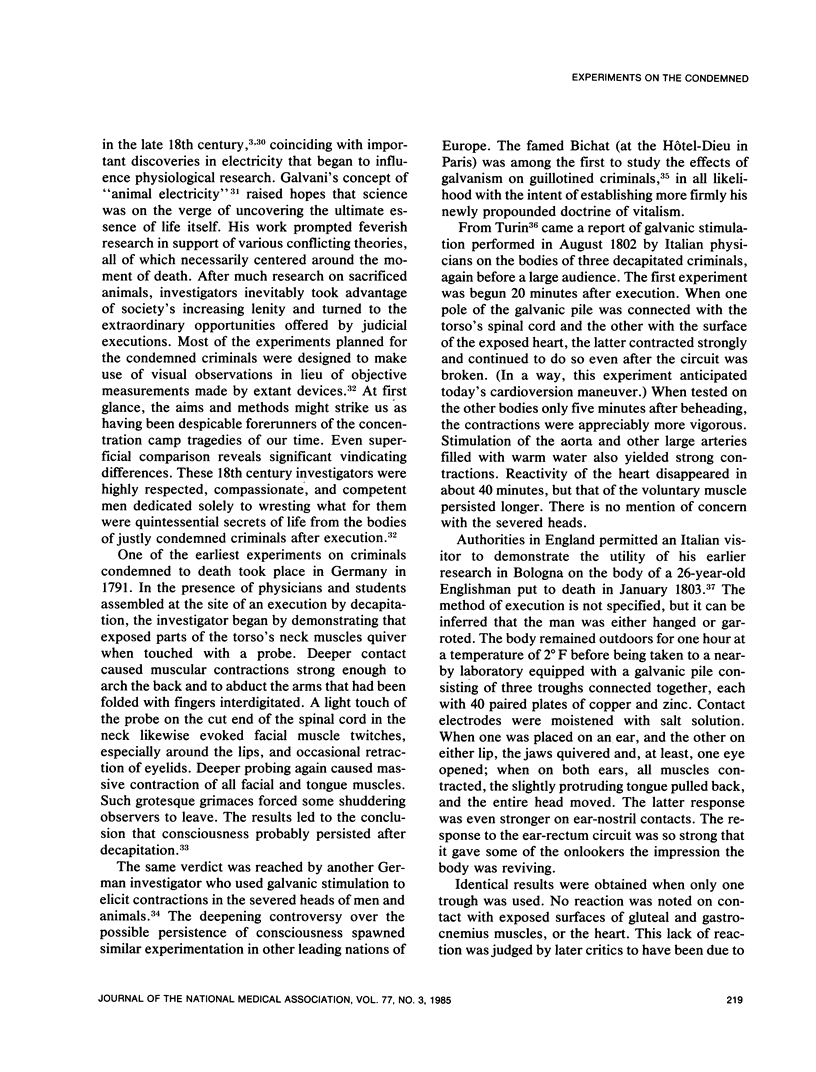
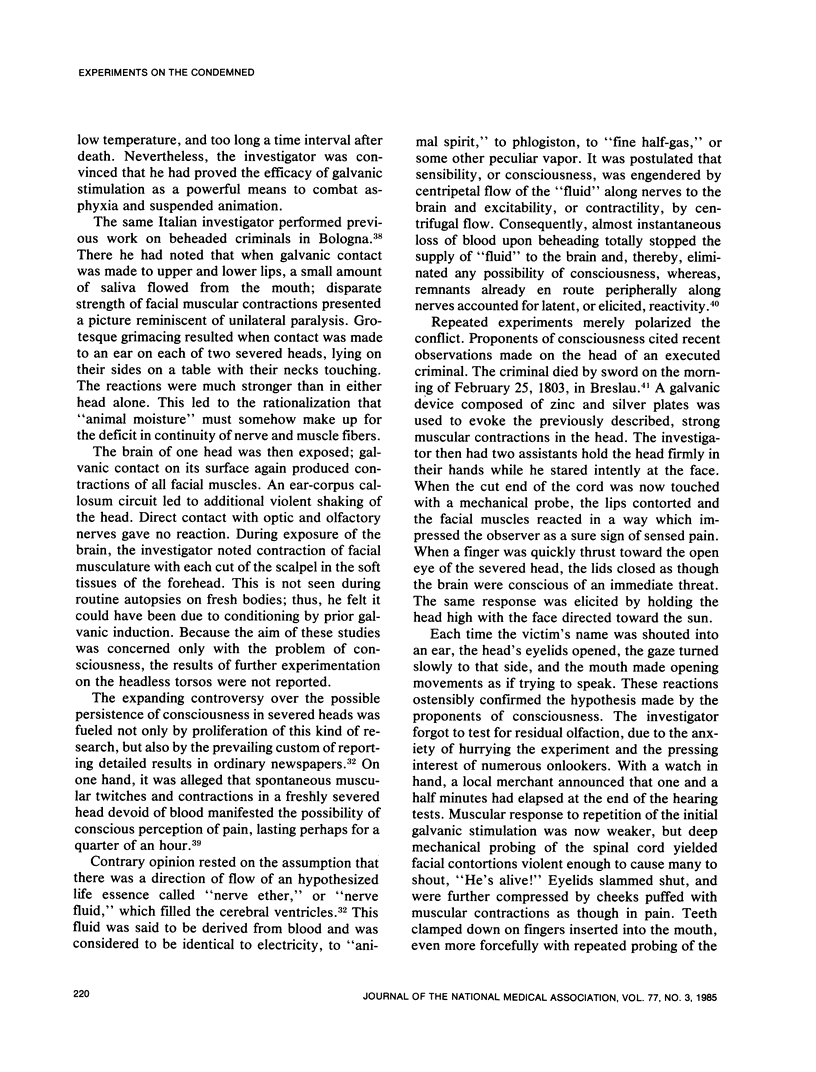
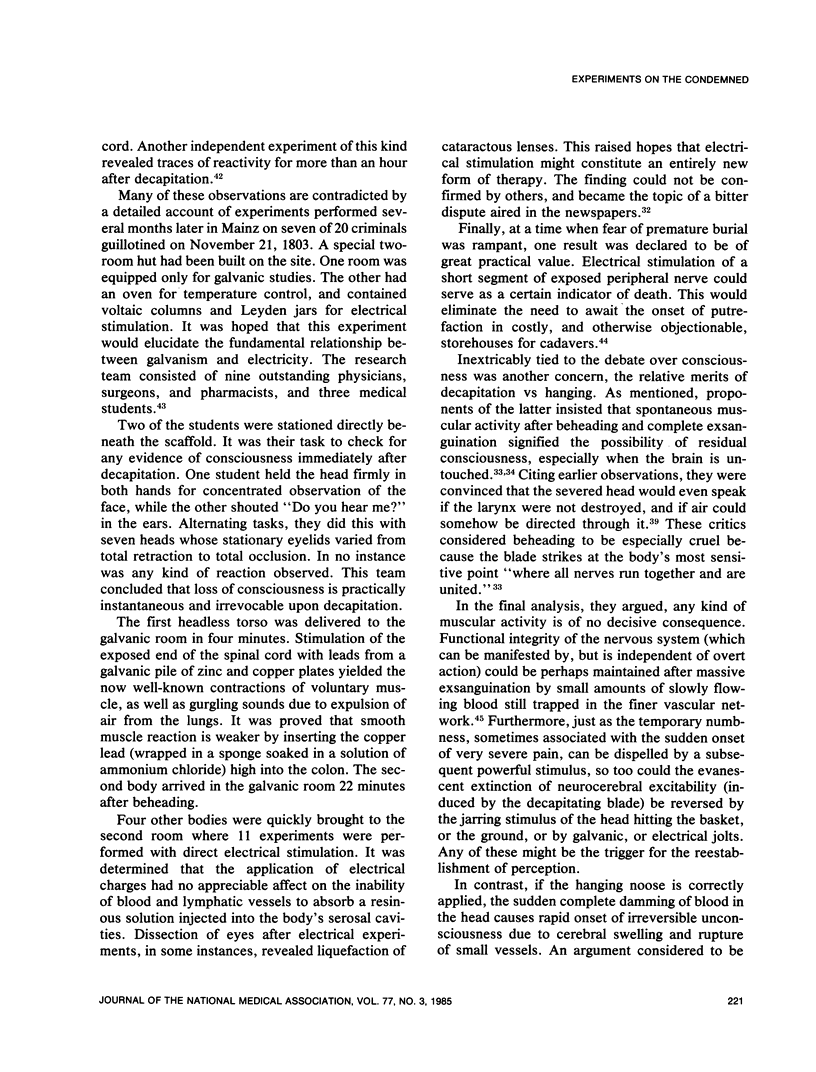
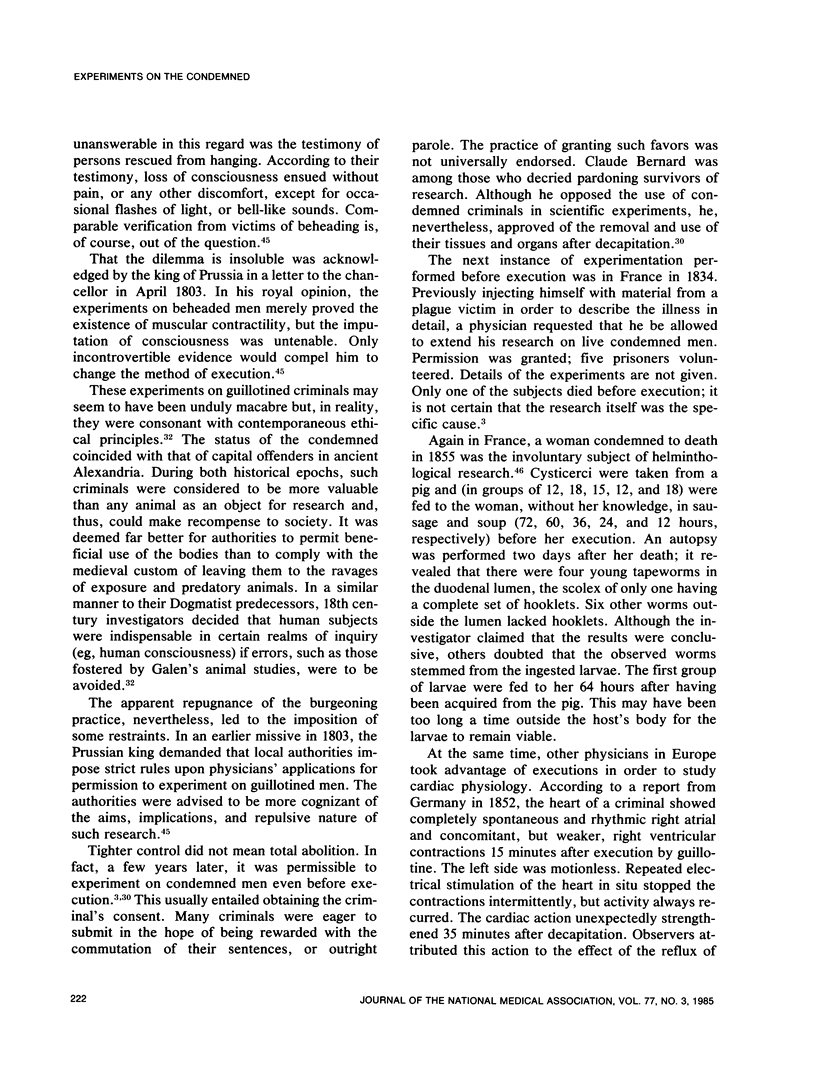
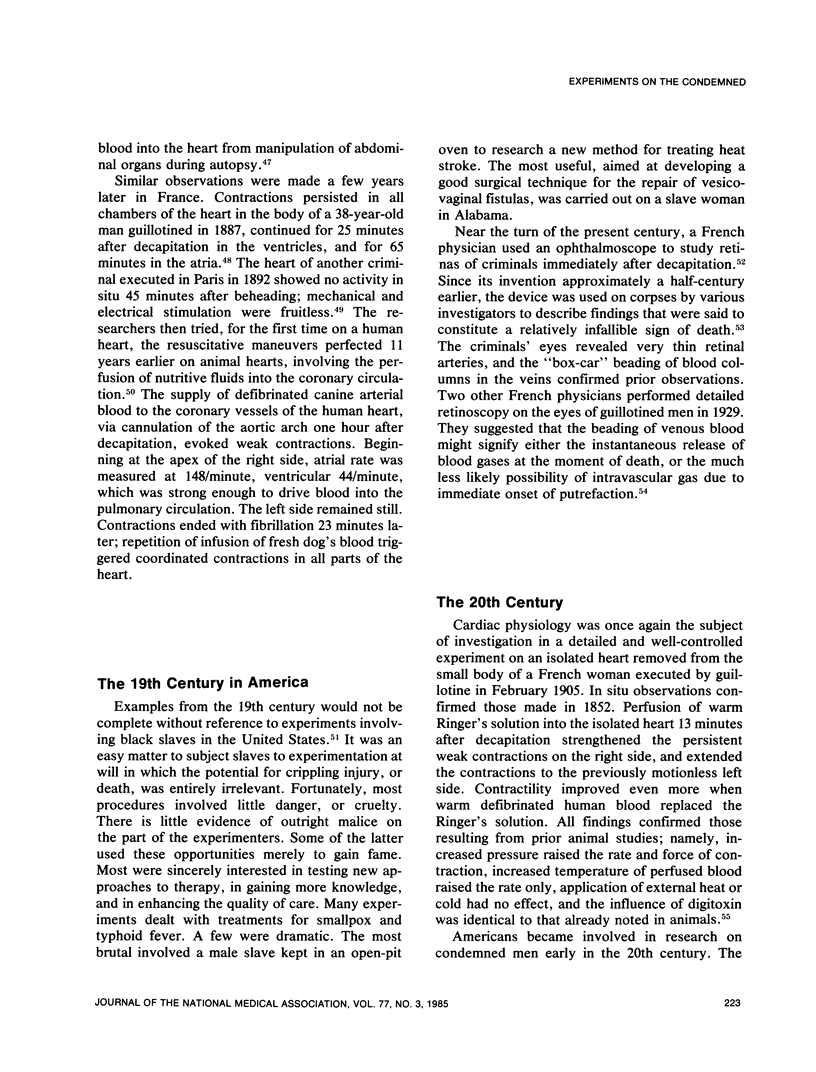
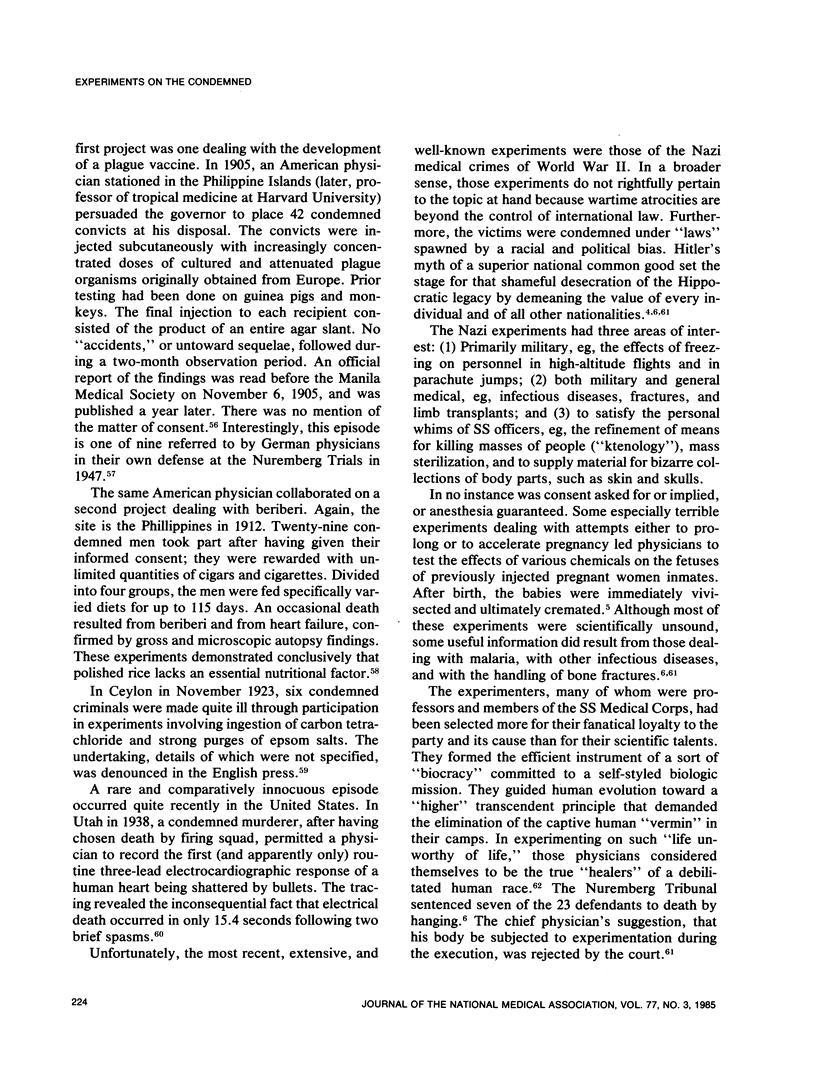
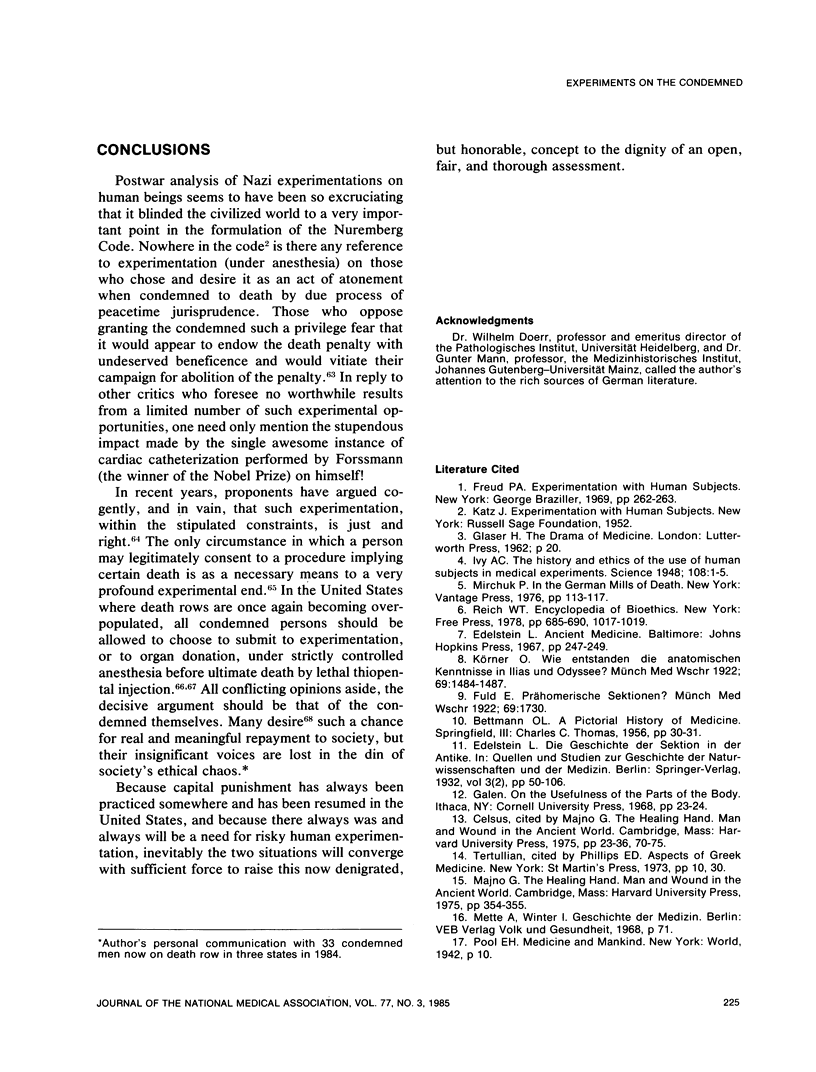
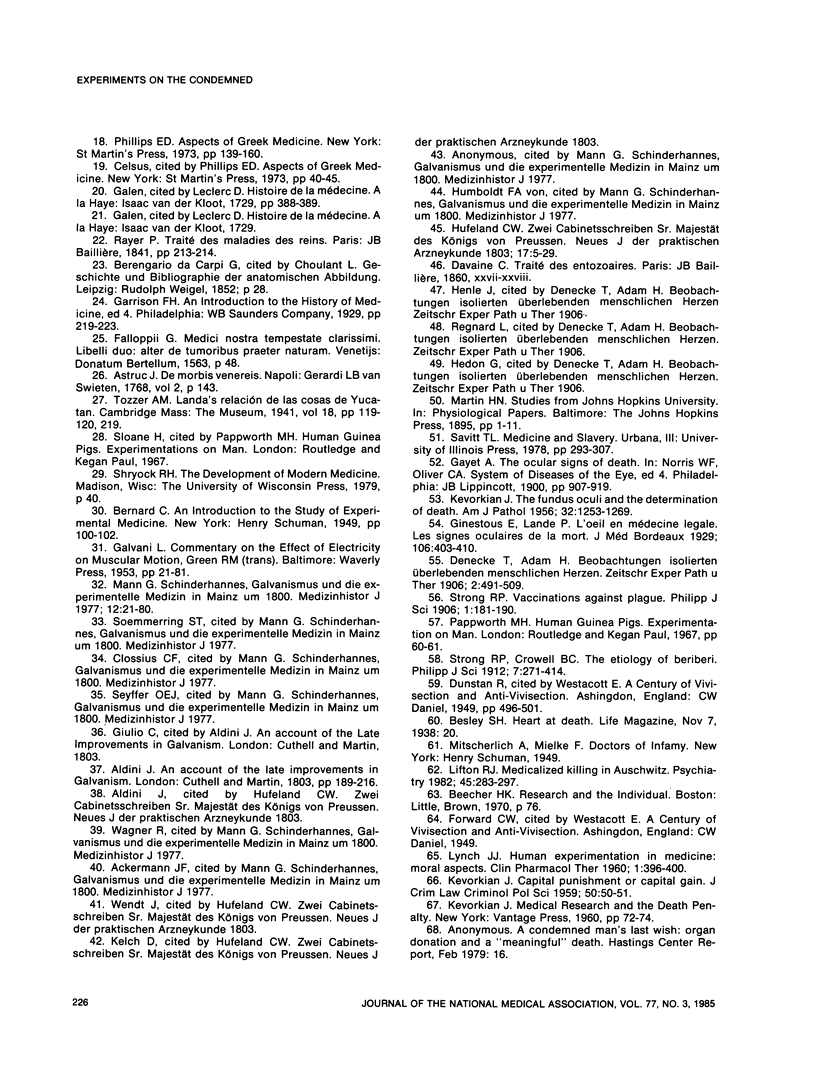
Selected References
These references are in PubMed. This may not be the complete list of references from this article.
- Ivy A. C. The History and Ethics of the Use of Human Subjects in Medical Experiments. Science. 1948 Jul 2;108(2792):1–5. doi: 10.1126/science.108.2792.1. [DOI] [PubMed] [Google Scholar]
- KEVORKIAN J. The fundus oculi and the determination of death. Am J Pathol. 1956 Nov-Dec;32(6):1253–1269. [PMC free article] [PubMed] [Google Scholar]
- LYNCH J. J. Symposium on the study of drugs in man. Part III. Human experimentation in medicine. Moral aspects. Clin Pharmacol Ther. 1960 May-Jun;1:396–contd. doi: 10.1002/cpt196013396. [DOI] [PubMed] [Google Scholar]
- Lifton R. J. Medicalized killing in Auschwitz. Psychiatry. 1982 Nov;45(4):283–297. doi: 10.1080/00332747.1982.11024161. [DOI] [PubMed] [Google Scholar]
- Mann G. Schinderhannes, Galvanismus und die experimentelle Medizin in Mainz um 1800. Medizinhist J. 1977;12(1-2):21–80. [PubMed] [Google Scholar]


